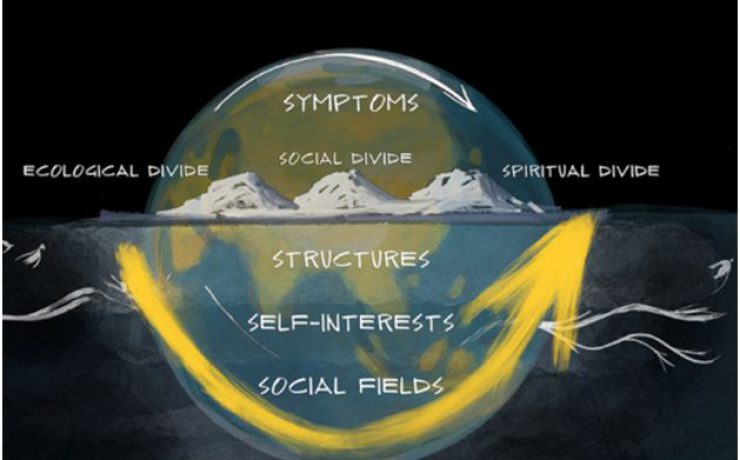CONFESSIONS AND CONFUSIONS OF A CONSUMER by Heather Henshaw
The idea of consumerism is that the more we buy, and can buy, the better it is for us; and that it is economically attractive to encourage the attainment of goods and services in ever-increasing amounts. The success of consumerism is dependent on us buying into this idea wholeheartedly.
This is neatly linked to levels of prosperity, aspiration and success. Those of us who are hungry, homeless, do not have enough money to heat/cool our homes, are on low pay, un-employed, or live in unsafe environments where money can’t buy security etc. are mostly onlookers or victims in this race to accumulate goods. They must focus on the daily crisis, though they may wish otherwise. Consumerism involves the rest of us who are fortunate enough to have sufficient income, and extra cash to spend.
I must confess that I am fortunate enough to be a consumer with money to spend. What I like, what I really, really like is chocolate. I love a new dress, holidays, and a bargain. But it could be cars, the latest mobile phones, computer games, rare objects, gadgets, big houses. You know your own (wish) list, and how much and how often you buy what you desire.
How did this consumer lifestyle develop? The rich have always demonstrated their power with material goods and status symbols, what 19th century sociologist Thorstein Veblen termed conspicuous consumption’. Normal trade, however, was always a system for buying and selling the things we needed. But, once those basic, physical needs were met, in richer parts of the world at least, businesses started to sell things that would make us feel ‘special’. Industrialization and mass production gave more people the chance to buy cheap products, often copies of more expensive things, and to aspire to the ‘good life’. This has escalated over the last two hundred years, and since the 1950s, people everywhere on the globe have consumed more goods than the combined total of people throughout history.
What do these purchases do for me? It could be that they satisfy my inner desire for new, interesting, innovative things; and I certainly deserve them, because I have the money and I worked hard for it. Also, it could be that, at the moment, there is a great offer, and I will miss out if I don’t buy now, so I’m being very sensible. And, even if I don’t really have the money, I can buy now, pay later. It could be that these lovely, material goods fit my dream of a beautiful future, of what I’d like for myself and my family. It certainly could be that these goods make me feel confident, distinctive, that they reflect who I am, what I stand for, what values I have. In addition, when I’m feeling sad, or insecure, ‘retail therapy’ is a great comfort. There may be pressure. It could be that I must keep up with or be ahead of my neighbours, colleagues, other men/women, friends etc; and they might reject or laugh at me if I don’t.
I might even feel that I’m doing ‘good’ by buying more and more, especially if I’m buying fair trade, or locally made goods. And I am aware that if we all suddenly stopped consuming, there would probably be a terrible, global recession.
Who influences me in all this? Well, the marketing industry of course, who provide the information, advantages, images and financial incentives for every product I might buy, and who are present 24/7 everywhere, in every public space, at work, at home and in our brains. From simple, informative messages, advertising has grown to have a super impact on our society and ourselves. We cannot move for TV ads, mobile messaging, e-promotions, individually targeted using every e-footstep we take, billboards, flyers, branded shoes and handbags, and you know what else. And along with the growth of an all-persuasive advertising industry has been the growth in ‘branded’ goods. With these, we conform to the current trend, put quality and function in second place, pay more, and advertise the manufacturer’s name for free! In her classic book on globalism and branding ‘No Logo’ (Knopf Canada and Picador 1999), Naomi Klein observes that a branded product is not created in the factory anymore; it’s created in the marketing department. Companies are not producing things but images of things and we are parting with our cash to buy a ‘myth’.
Many people have responded by purchasing fair trade, charity branded goods. They believe that such consumption demonstrates their ethical social values.. However, professors Joseph Heath and Andrew Potter, in their book, ‘The Rebel Sell’ (Capstone, 2004), argue that this new anti-globalist, non-conformist culture has also become a “central ideology” of consumerism. Everyone, even rebels, wish to demonstrate their own, distinctive style. And wherever you find capitalism at its most aggressive, as in the marketing of sportswear and pop music, a “rebel sell” philosophy is at work – look ‘cool’, outside the mainstream, unique.
To summarize, the health of the marketing industry is now an indicator of global, economic health and, as the character Tyler in the film ‘Flight Club’ says, “Advertising has us chasing cars and clothes, working jobs we hate so we can buy shit we don’t need.”*
Unfortunately, the marketing industry, and ourselves, do not like to face the negative side of our thoughtless consumption. Alongside the image, we must accept that what we buy supports terrible working conditions, insecure employment and low wages; that our phone runs on rare minerals mined by forced labour in conflict zones and that those who farm cocoa never taste chocolate.
We must accept built-in ‘obsolescence’, because consumerism works best if things only last a short time and we have to keep upgrading or buying new models.
We must accept environmental degradation in air, water and land, loss of natural habitats, thoughtless use of energy depleting dwindling resources. And the waste, so much waste, food waste, plastic garbage everywhere, mountains of metal from cans, gadgets and bigger equipment which we don’t know what to do with. Current research says we are now eating and drinking plastic micro-fibres created by our own, throw away culture.
Psychologically, we are constantly hunting for new things. Advertising puts the young and vulnerable under pressure and creates insecurity. We get into debt, we even suffer ill-health due to over indulgence and unhealthy habits. Our special events and religious celebrations are spending orgies, which often detract from their real meaning. We get what we want now, we feel good for a short time, but do we really want to be consumer ‘pawns’ in someone else’s marketing plan?
Do I have any (self) advice? Well, firstly, regain consumer independence. Actively avoid marketing information (and train your children likewise), only shop for what you need and stay within a sensible budget. Reduce impulse and bargain over-buying. Secondly, use intelligent purchasing power. Take a careful look at each thing you buy and ask the questions: where, how and by whom was that made (supply chain); what’s it made of, quality, function, suitability, and will it last long enough to be enjoyed and used? Can I buy second hand/vintage or fair trade? Always refuse disposable products and packaging. Consider telling companies that you want products which are good for everyone. Most importantly, live slowly, and well, nurture a real free spirit, spend more time on other activities, give some of that extra cash to help others. I can do nothing better than listen to the advice of Albert Einstein: ’Try not to become a person of success, but rather try to become a person of value.’ And, dear advertisers, please, don’t make that the next marketing message!
*1999, Director, David Fincher, based on the 1996 novel by Chuch Palahniuk


